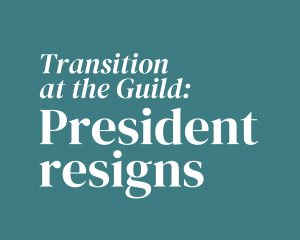 I would say about 9 times out of 10, the first slide of my first lecture each semester features the same graphic of a phone with a big red ‘X’ across it. I would also say that 9 times out of 10, someone in the lecture’s phone buzzes constantly throughout the 90 minutes. As class ends, 300 phones come out and get checked as we meander over to the Bot Bar or our next class. Sound familiar?
I would say about 9 times out of 10, the first slide of my first lecture each semester features the same graphic of a phone with a big red ‘X’ across it. I would also say that 9 times out of 10, someone in the lecture’s phone buzzes constantly throughout the 90 minutes. As class ends, 300 phones come out and get checked as we meander over to the Bot Bar or our next class. Sound familiar?
I’ll come out and say it; I’m glued to my phone. I check it constantly and have done so for the past three years of my degree. Even as a deadline creeps up on me in week 11, I will consistently waste hours editing photos, scrolling through Instagram or reading my online subscription to Crikey rather than start my essay.
When I first read about the concept of a ‘Distraction Free Phone’ I was suspicious. How can you take the one thing I am addicted to, that every person I know is addicted to, above all else and turn it into a functional device? How do I keep off the device that gives me answers, emails, directions, social media, music, the weather and communication with my nan? Well, it’s possible. The goal is to keep the functionality of your phone and zap the time suck element. This is how a distraction-free phone works and how to get (dis)connected.
Your Brain with a Smartphone
How much do you think your phone controls your brain? The answer: A LOT. A journal article from the University of Chicago Press delves into the psychology of having your phone near you and its effect on your ability to get work done. ‘Brain Drain: The Mere Presence of One’s Own Smartphone Reduces Available Cognitive Capacity,’ highlights how much we think about our phones. Read the Abstract:
Our smartphones enable—and encourage—constant connection to information, entertainment, and each other. They put the world at our fingertips, and rarely leave our sides. Although these devices have immense potential to improve welfare, their persistent presence may come at a cognitive cost. In this research, we test the “brain drain” hypothesis that the mere presence of one’s own smartphone may occupy limited-capacity cognitive resources, thereby leaving fewer resources available for other tasks and undercutting cognitive performance. Results from two experiments indicate that even when people are successful at maintaining sustained attention—as when avoiding the temptation to check their phones—the mere presence of these devices reduces available cognitive capacity. Moreover, these cognitive costs are highest for those highest in smartphone dependence. We conclude by discussing the practical implications of this smartphone-induced brain drain for consumer decision-making and consumer welfare.
Adrian F. Ward, Kristen Duke, Ayelet Gneezy, and Maarten W. Bos, “Brain Drain: The Mere Presence of One’s Own Smartphone Reduces Available Cognitive Capacity,” Journal of the Association for Consumer Research 2, no. 2 (April 2017): 140-154. https://doi.org/10.1086/691462 (Yep, GLASS provides Academic Citations these days.)
Yikes. Alongside this, we all know about the effects of blue light and our sleep, as well as mental health decline from the constant perfectionism, thrust upon us to the point that selfie dysmorphia exists.
Creating your new Phone
Create a good environment for a distraction-free phone
Get a phone drawer and a zip pocket in your bag to put your phone in when you need to get work done
Fill your space with more productive things. Add other things to do, keep books or writing materials or something else productive nearby.
Buy an alarm clock, so your phone isn’t the first thing you touch – the same goes for a watch.
Cleansing your Apps and Social Media
Delete the Social Apps off your phone. Instagram, Facebook, Twitter, Linkedin, TikTok.. the lot. Most importantly, your emails you spend so much time on your emails
If you can’t bring yourself to delete just yet, here are some ideas:
Set a timer notification to alert you when you’ve spent too much time in a social media app.
Go and cleanse your feed. Take some time do go and unfollow all these people:
- People that make you feel awful, whether they’re rude, triggering or just display unrealistic highlight reel
- People trying to sell you stuff you don’t need
- People you haven’t talked to in 5+ years
Making your feed a more positive place to visit will help hinder the negative, competitive feeling we get when we log on usually.
Spring clean your Apps and only keep what you need. Here’s how:
- Take them out of their folders
- Shuffle all your apps around to disrupt your muscle memory
- Delete all the ones you barely use (find usage in settings)
- Prioritise your apps for the most important productivity/life-enriching apps on your first page. Camera, timer etc
- Make apps you find a time suck harder to find, on a different page, in folders etc
Turn off all unnecessary notifications
Keep important things like texts, maps and data allowances. Don’t compromise the functionality of your phone for a clean screen.
But you can let your spam email go. Pizza delivery notifications and such can go too.
Add your screen time widget for self-awareness. This tells you how much time you’ve spent in each app on a given day, making for more accountability.
Other Little Tips
- Turn on Night Mode
- Turn off Raise to Wake
- Turn on Do Not Disturb when you need
- Set an app lock for certain times e.g: 10pm-6:30am







